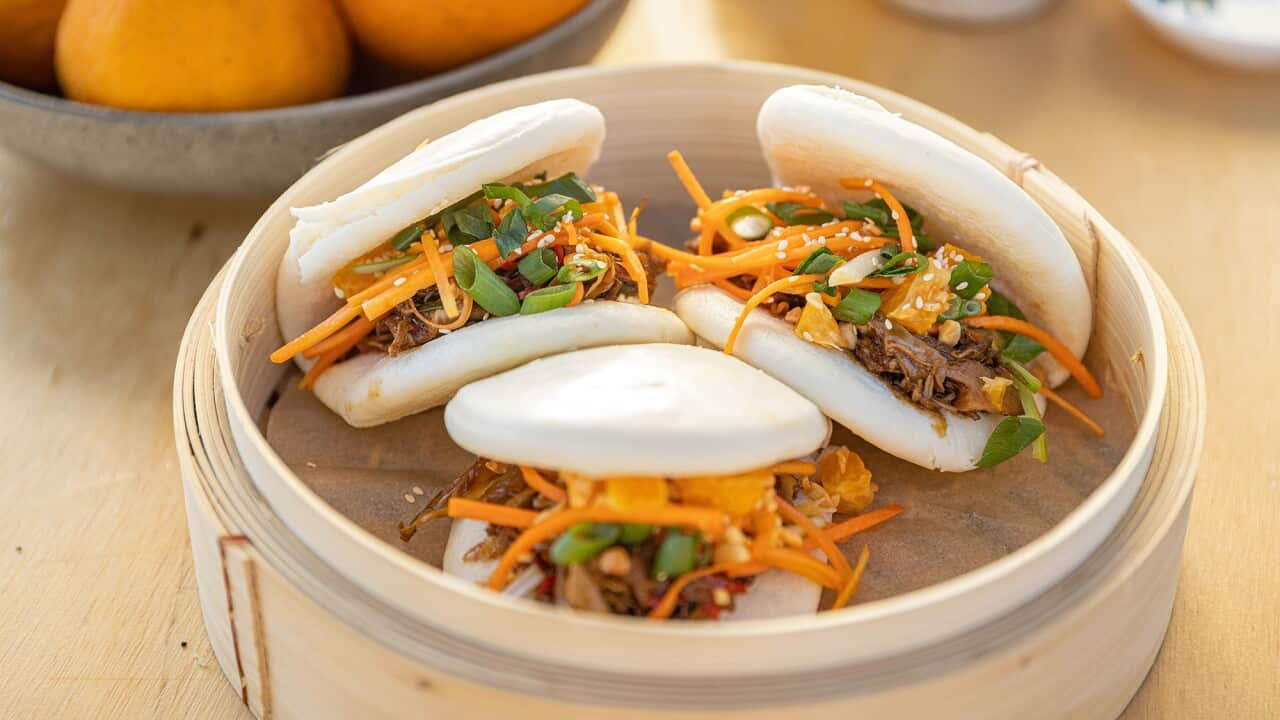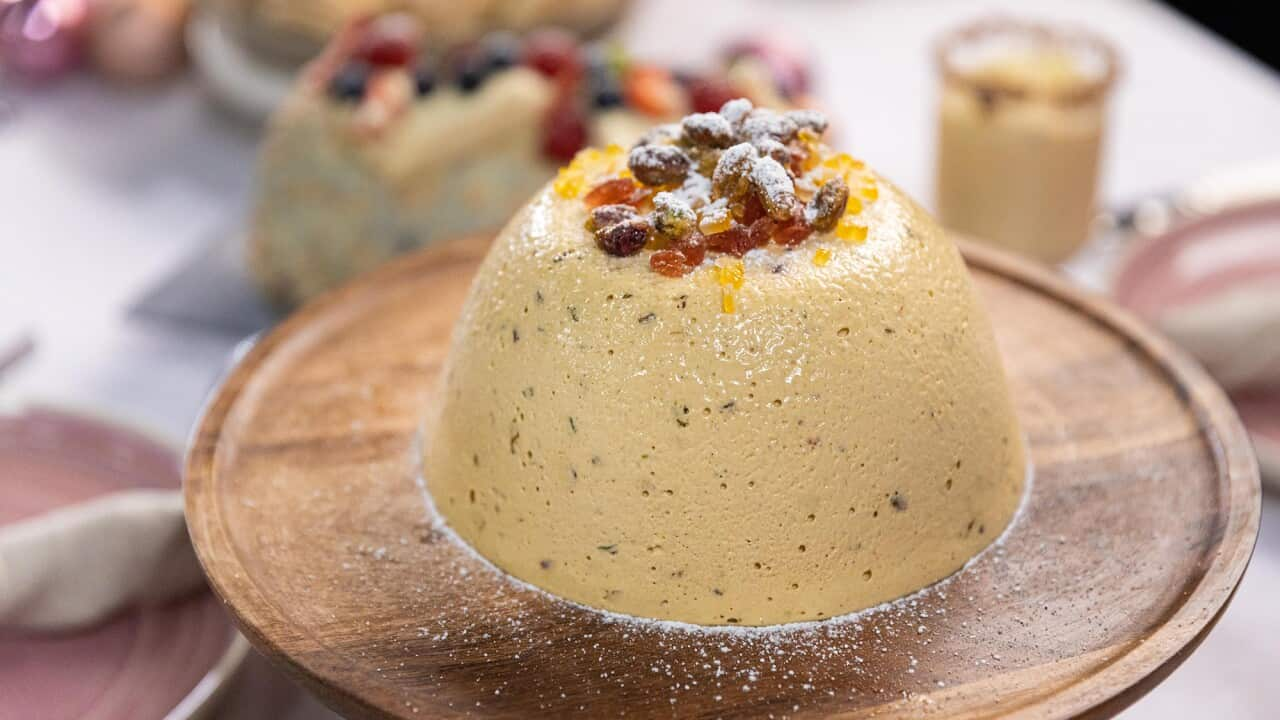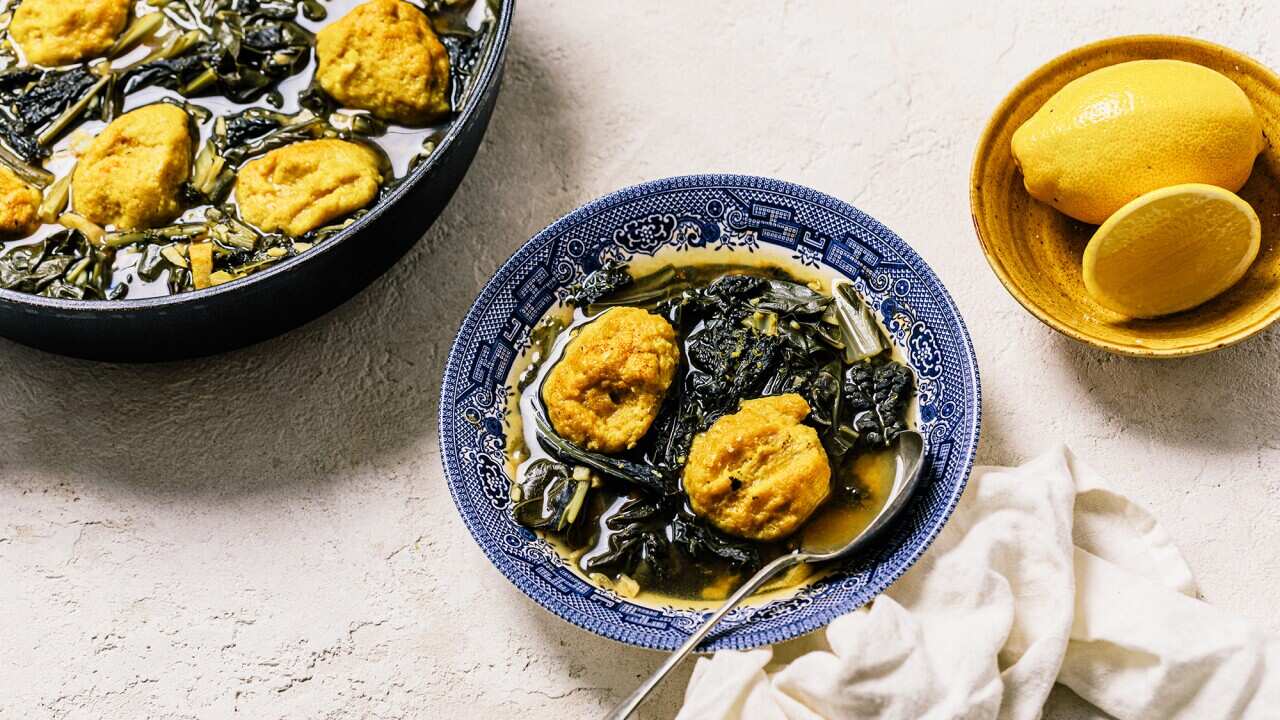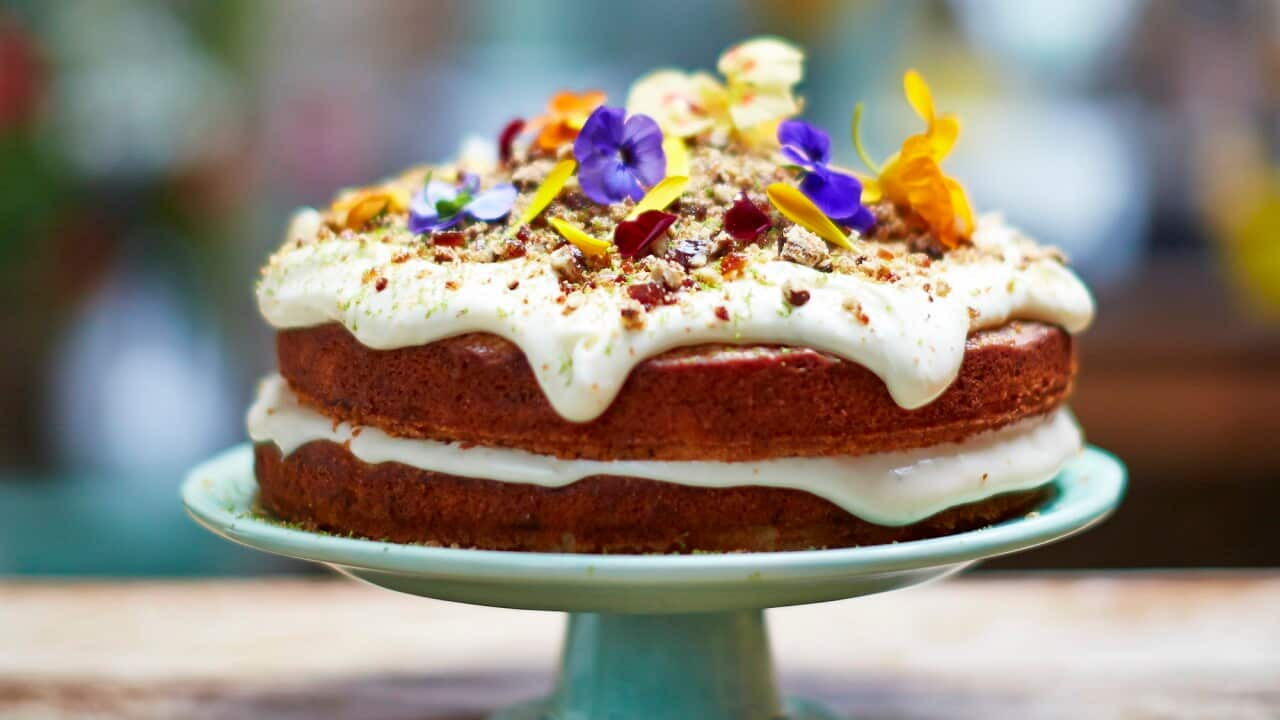serves
6
prep
15 minutes
cook
25 minutes
difficulty
Easy
serves
6
people
preparation
15
minutes
cooking
25
minutes
difficulty
Easy
level
It can be eaten on its own with Maast-e chekideh or with grilled meat or fish
Ingredients
- 500 g (1 lb 2 oz/2½ cups) Persian or basmati rice
- salt
- butter, for frying
- 15 g (½ oz/¼ cup) barberries, soaked for 5 minutes, then drained
Tah digh
- 1 egg yolk
- 3 tbsp plain yoghurt
- 50 g (1¾ oz) butter, melted
- ½ tsp ground saffron dissolved in 1 tbsp boiling water
Soaking time: 5 hours (can be skipped, if you don't have time)
Instructions
1. Wash the rice in cold water, changing the water 3–4 times. If you have time, leave it to stand in plenty of lightly salted water for up to 4 hours.
2. When ready to cook, drain the rice, then transfer to a saucepan and cover with water. Gently boil until the rice is just ‘al dente’, about 5 minutes. Drain the rice and rinse it under cold water to stop it cooking further.
3. For the tah digh, mix the ingredients together in a bowl.
4. Add 4–5 tablespoons of the rice.
5. Melt 1 tablespoon of butter in a non-stick saucepan. Spread the tah digh rice mixture evenly over the bottom of the pan, then gently heap the remaining rice on top like a pyramid.
6. Using the back of a wooden spoon, make 6 or so deep holes in the rice. Insert a little knob of butter into each hole, then cover the pan with a tight-fitting lid. Let it cook over medium heat for 20 minutes.
7. Take the pan off the stove and leave it to stand in very cold water for 2 minutes (this will loosen the tah digh), then gently shake the pan.
8. Taking care as the pan will still be very hot, invert the tah digh onto a serving plate. The crust should come off easily. Decorate with the barberries.
Pardiz by Manuela Darling-Gansser (Hardie Grant Books, $60.00). Photography by Simon Griffiths & Ebrahim Khadem Bayat.
Cook's Notes
Oven temperatures are for conventional; if using fan-forced (convection), reduce the temperature by 20˚C. | We use Australian tablespoons and cups: 1 teaspoon equals 5 ml; 1 tablespoon equals 20 ml; 1 cup equals 250 ml. | All herbs are fresh (unless specified) and cups are lightly packed. | All vegetables are medium size and peeled, unless specified. | All eggs are 55-60 g, unless specified.
It can be eaten on its own with Maast-e chekideh or with grilled meat or fish









